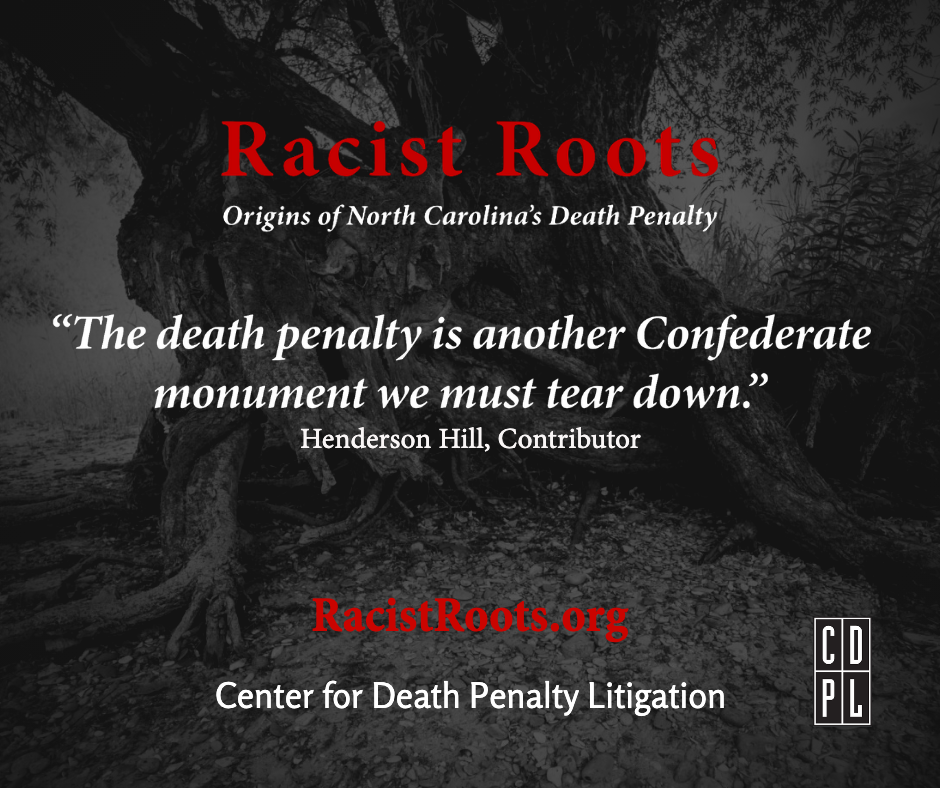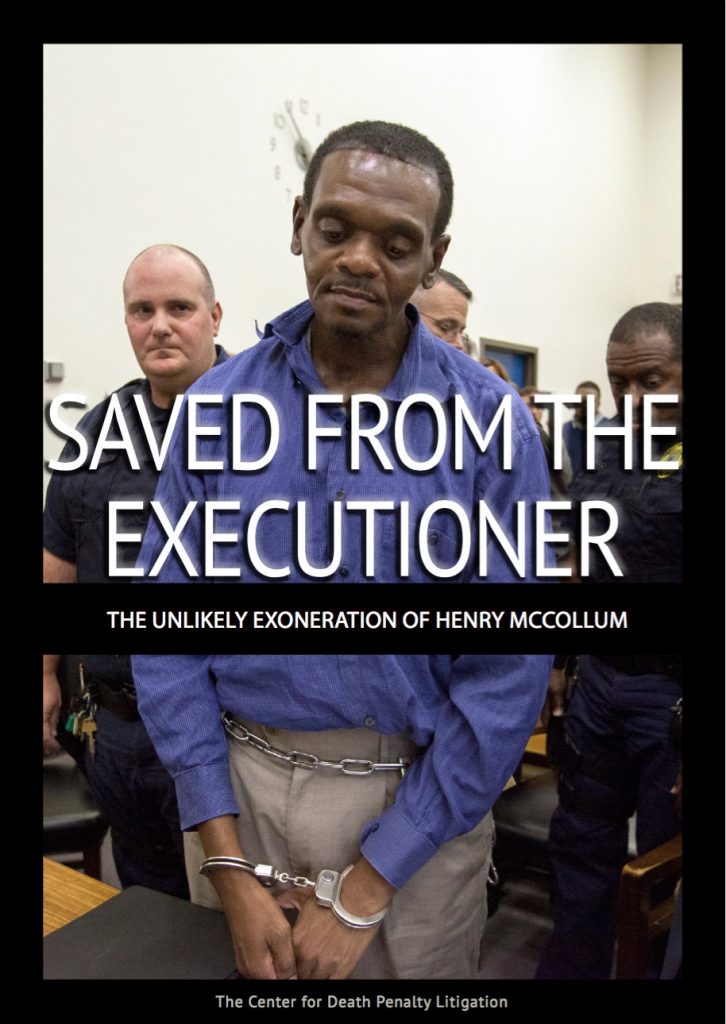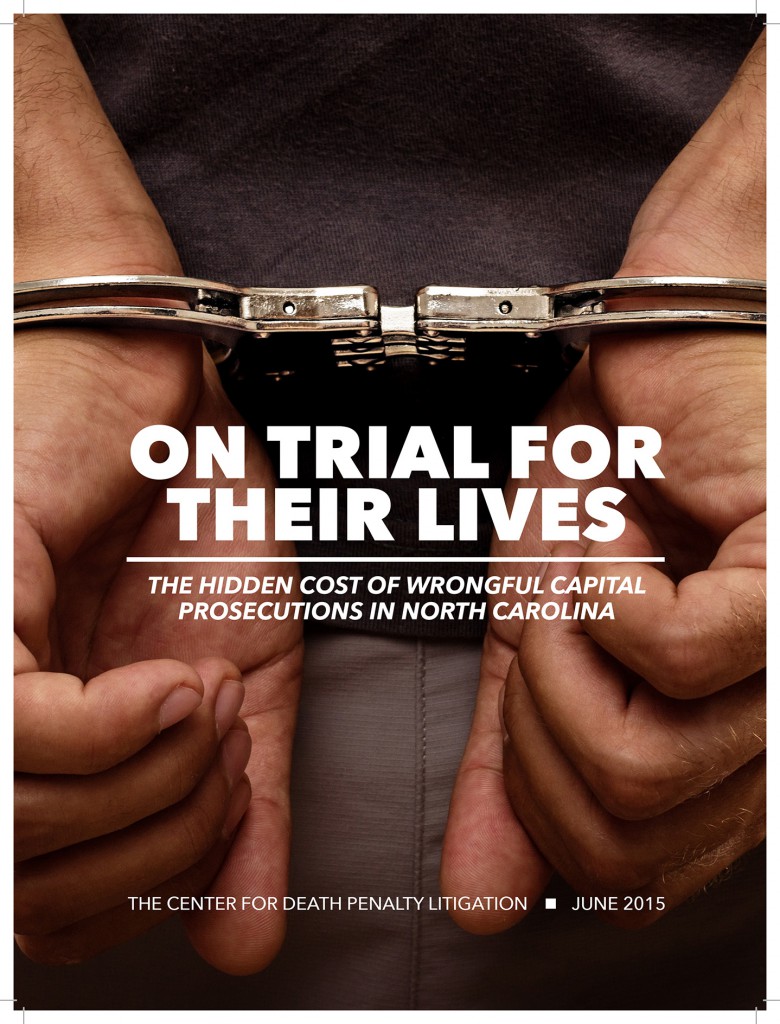In October 2020, the Center for Death Penalty Litigation, in collaboration with scholars, advocates, artists, historians, poets, and people directly affected by the death penalty, launched Racist Roots: Origins of North Carolina’s Death Penalty.
The project includes essays, poetry, artwork, commentary, and historical documents that place the state’s death penalty in the context of 400 years of history and expose its deep entanglement with slavery, lynching, Jim Crow, and modern systemic racism. The death penalty, the project contends, is another Confederate monument that North Carolina must tear down. [Read the essay that sums up this project.]
“The death penalty began as a way to enforce a racist social order, and as it evolved through the generations, our state never addressed the original sin that lay at its root,” CDPL Executive Director Gretchen Engel said. “Today, the death penalty is the apex of a racist criminal punishment system that cages hundreds of thousands of people and declares human lives, particularly those of Black people, expendable. The clear message of this project is: Any meaningful conversation about race and criminal justice in North Carolina must include the death penalty.”
Racist Roots shows that in every incarnation, from slavery to post-Civil War Reconstruction, to Jim Crow, and to the modern criminal punishment system, those wielding the death penalty have imposed it disproportionately on Black people; valued the lives of white victims above all others; and excluded citizens of color from power by systematically excluding them from capital juries. So, while the precise influence of racism in the death penalty has changed from era to era, its essential nature has not.
Today, people of color make up less than 30 percent of North Carolina’s population but 60 percent of its death row. Black defendants are far more likely to be wrongly convicted; eight out of ten of North Carolina’s death row exonerees are Black and a ninth is Latino. Nearly half of the people on death row had an all-white jury or a jury with only a single person of color. Qualified Black jurors are two and a half times more likely than whites to be struck from capital juries. Defendants are twice as likely to be sentenced to death if they’re accused of killing a white person, rather than a person of color.
The project details the cases of some of North Carolina’s nearly 140 current death row prisoners to expose racism’s continuing influence. For example, Andrew Ramseur was sentenced to death in 2010 amid a racist public outcry comparing him to a “monkey” and demanding he be hung “from the nearest traffic light as a warning to the rest.” Rather than condemning bigotry, the district attorney promised — and successfully sought — a quick death sentence.
For essays, photography, video and more, go to RACISTROOTS.ORG.
Watch the Racist Roots film released in 2022 here.



